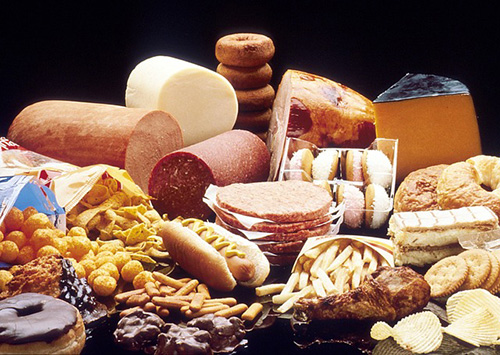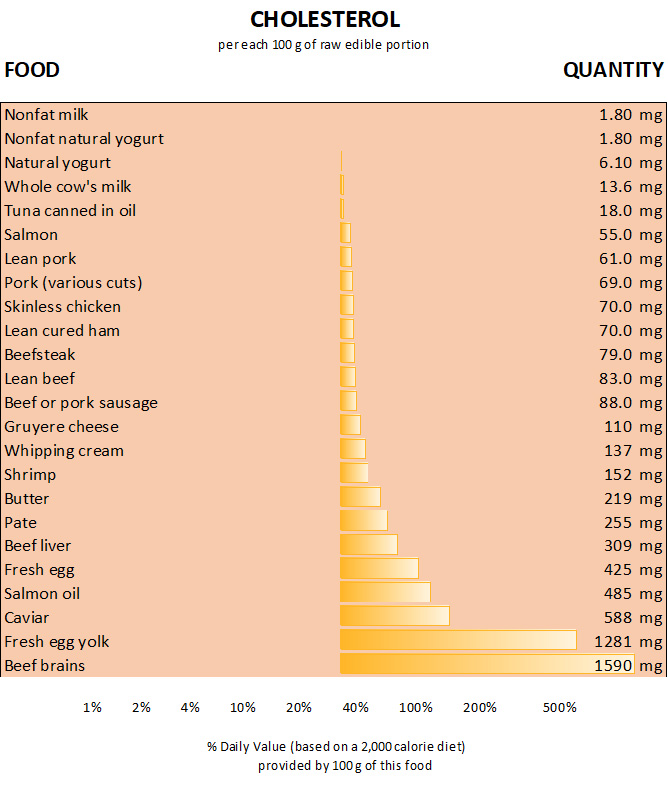Contents
Food sources of cholesterol frequently come up in conversations about nutrition and health. Due to its link to heart disease and other illnesses, it is a chemical that has attracted interest and notoriety. But cholesterol is not necessarily a bad thing. In reality, it serves essential functions in our bodies. It is crucial to fully comprehend cholesterol’s roles, subtypes, and influencing factors.
In some meals, the liver naturally produces cholesterol, a waxy, fat-like molecule. It is an integral part of cell membranes. It acts as a precursor for creating hormones, vitamin D, and bile acids, all necessary for digestion. Our bodies would struggle to perform these essential functions without cholesterol.
The Body Controls Cholesterol

The two main kinds are low-density lipoprotein (LDL) and high-density lipoprotein (HDL). Due to its potential to contribute to atherosclerosis and an increased risk of heart disease, LDL is sometimes called “bad” cholesterol. HDL, on the other hand, is described as “good” since it removes LDL cholesterol from the bloodstream, lowering the risk of cardiovascular issues.
The body closely controls cholesterol levels to preserve a precarious balance. But several things can affect this balance. Dietary intake is vital since some foods, such as trans and saturated fats, can increase LDL levels. On the other hand, soluble fiber-rich meals, including fruits, vegetables, and whole grains, can assist in reducing LDL cholesterol. Genetics also have an impact because some people may be genetically predisposed to having higher cholesterol levels.
The Importance of Lipid Tests
Regular medical check-ups include routine measurement of cholesterol levels. A lipid profile blood test can give precise details regarding total cholesterol, LDL, HDL, and triglyceride levels. These figures can help identify potential dangers and indicate a person’s cardiovascular health.
Maintaining healthy cholesterol levels is essential for general health. Lifestyle changes can significantly affect cholesterol levels. Critical elements in controlling levels include regular exercise, a healthy diet, and abstaining from cigarette use. When lifestyle changes alone are insufficient to lower cholesterol levels, medication may be required in some circumstances.
It’s crucial to remember that cholesterol is a complicated subject, and its connection to heart disease is unclear. Recent studies have called some long-held beliefs regarding cholesterol and its relationship to cardiovascular health into question. However, preserving a proper cholesterol balance is crucial for good health in general.
Top Food Sources of Cholesterol

Scientific Facts About Cholesterol
Chemical composition: Cholesterol is a lipid (a substance similar to fats) whose chemical structure is similar to steroid hormones.
Animal-based foods and products: All of the following contain cholesterol:
- Milk and its derivatives
- Eggs
- Fish
- Shellfish
- All types of meat. Variety meats of animals and eggs have the highest cholesterol content.
Plant-based foods: In broad lines, it may be broadly stated that none contains cholesterol. However, there are minute amounts in some vegetable oils, such as olive oil, and may be considered incidental. This small amount of cholesterol is considered of external origin.
Mushrooms: These are not actual vegetables and share some characteristics with animals. Certain species may contain minimal amounts of cholesterol.
Cholesterol Absorption
An omnivorous diet provides an average of between 500 and 800 mg of cholesterol daily. Of this amount, only 20 percent and 80 percent are absorbed; the rest is eliminated through feces.
- Facilitates absorption: The amount of total fat in the diet (the more fat consumed, the more cholesterol absorbed and produced by the liver).
- Reduces absorption: The amount of fiber in the diet (the more fiber is present, the less cholesterol is absorbed); phytosterols are found in unrefined oils.

Function
Cholesterol forms part of the membranes that protect the cells of animals. It is the raw material for producing sex and suprarenal (corticoid) hormones and bile, which is necessary to digest fats.
Consequences of Too Much Cholesterol
Arteriosclerosis (narrowing and hardening of the arteries due to deposits of cholesterol) and increased risk of heart attack (myocardial infarction) and stroke (thrombosis). The primary problem with cholesterol is its excess: it is not only taken in as part of the diet; the body also produces it.
Cholesterol is an undesirable component of animal-based foods. Consuming cholesterol is unnecessary, and avoiding it is more healthful. A diet of plant-based foods achieves this. The liver can more than synthesize all the cholesterol the body needs.
Daily Value (Acceptable Daily Intake) of Cholesterol
Ideal: 0 mg daily
Acceptable Daily intake for an adult: 300 mg.
Health Disclaimer: The information on this website is for educational uses only and is not a substitute for professional medical advice. Always consult an authorized healthcare provider for any health concerns before using any herbal or natural remedy. We do not establish, treat, cure, or prevent any disease. Reliance on any material from this website is solely at your own risk. We are not responsible for any adverse effects resulting from the use of information or products mentioned on this website.
REFERENCES
- George D. Pamplona-Roger, M.D. “Encyclopedia of Foods and Their Healing Power.” George D. Pamplona-Roger, M.D. Encyclopedia of Foods and Their Healing Power. Trans. Annette Melgosa. Vol. 1. Chai Wan: Editorial Safeliz, 2005. 406. Print.
- American Heart Association: https://www.heart.org/en/health-topics/cholesterol
- 2015-2020 Dietary Guidelines for Americans: https://www.dietaryguidelines.gov
- Fernandez, M. L. (2012). Rethinking dietary cholesterol. Current Opinion in Clinical Nutrition & Metabolic Care, 15(2), 117-121.
- Rong, Y., Chen, L., Zhu, T., Song, Y., Yu, M., Shan, Z., … & Li, Y. (2013). Egg consumption and risk of coronary heart disease and stroke: dose-response meta-analysis of prospective cohort studies. BMJ, 346, e8539.
- National Human Genome Research Institute: https://www.genome.gov/Genetic-Disorders/Familial-Hypercholesterolemia
- USDA Food Composition Database: https://fdc.nal.usda.gov
